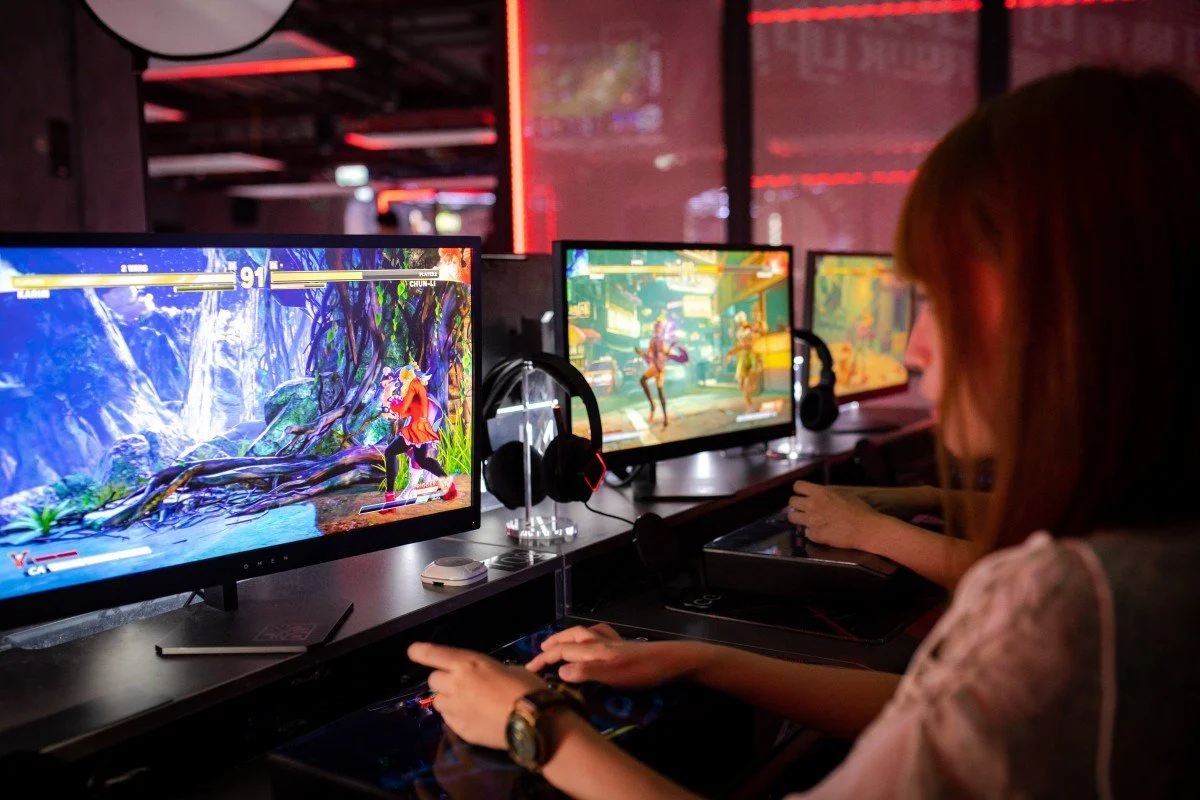Traditional ticketing systems, plagued by monopolies, scalping, and fraud, hinder audience participation in the arts. NFT ticketing may offer a solution, enhancing transparency, security, and fairness by eliminating intermediaries, preventing fraud, and enabling artists to control resale terms. Read how two companies, Yellowheart and Open Ticketing Ecosystem, have effectively started to integrate the technology into ticketing systems.
Disruption and Acquisition in the Entertainment Industry - March News
An eventful March unfolds in the arts, technology, and entertainment space. With the sale of TikTok still pending, well-known tech investors like Perplexity, Microsoft, and Oracle throw their hats in the ring. And, though ethical debates of AI-generated and AI-assisted work are ongoing, it is finding success in the auction houses and award ceremonies. Meanwhile, recent tech acquisitions may signal a shift in the music industry, and South by Southwest (SXSW) is making a strategic adjustment following this year’s festival. Read the highlights.
Part II: Live Service Games - Consumer Engagement and Retention
With this increased competition form live service gaming, consumer expectations continue to shift and grow. In Part II of this capstone research by Heinz College Master of Entertainment Industry Management students, the team has employed data-gathering methods such as interviews, a survey, and social listening to better understand factors influencing player engagement and retention.
Part I: Best Practices for Live Service Game Campaigns
Live service games, or LSGs, are one of the largest drivers in gaming revenue. However, as the market continues to saturate, game developers are finding it difficult to sustain players. In part one of this capstone study by Heinz College Master of Entertainment Management students, learn more about the background of these games and what has made them so successful.
Music, Movies, & More - February News
In the middle of awards season, major announcements in the media and entertainment industry defined February’s news. While Spotify prepares to ramp up its product offerings, new AI-powered tech is winning Grammys and helping make magic happen on the big screen. All this takes place in the shadow of some major policy announcements regarding copyright and AI.
Part II: Game IP: From Console to Screen
As the video game industry continues to grow, Hollywood studios are capitalizing on this intellectual property (IP) success through film and television adaptations. Students from Heinz College’s Master of Entertainment Industry Management program sought to better understand the current market for these adaptations. In Part II, see what film and video game executives consider to make an adaptation successful. Additionally, through a survey of gamers and non-gamers, learn what potential audiences prefer to see.
Part I: Playing the Game: The Convergence of Video
Due to the popularity and booming business of video games, Hollywood studios have capitalized on popular game titles by developing new content based off of their intellectual property (IP). This study sets out to better understand video game IP’s impact on film and television markets and what specific elements might impact an adaptation’s success.
Part II: Stakeholder Interests in the Future of AI and Entertainment
How will AI-generated content transform the entertainment industry? And what are the impacts on employment, content development, budgets, contracts, legislation, and privacy rights? Part II of this research by Heinz College Master of Entertainment Industry Management students provides an in-depth analysis of survey and interview data from entertainment lawyers, educators, and other industry professionals.
Part I: A New Era of AI in the Entertainment Industry
As exemplified by the Hollywood strikes of 2023, we find ourselves in a new era of Artificial Intelligence in film and television. While studios are looking to cut costs, performers seek job security, and consumers seek quality content. Through research conducted in collaboration with facial motion capture technology provider Faceware Technologies Inc., Master of Entertainment Industry Management students at Carnegie Mellon sought to gain insight on how AI-generated content will transform existing industries, including how this technology could affect employment in the entertainment industry, content development, budgets, contracts, legislation, and privacy rights.
Multilingual Technology for Global Entertainment: A Case Study of Netflix
The Challenge to Keep Millennials and Gen Z Interested in Long-Form, High Quality Content: Part Two
Social media is infused into the daily lives of Gen Z and Millennials. In order to reach and meaningfully engage with IND18-35, organizations should build a thoughtful social media presence to funnel the IND18-35 community to specific content. Initially, organizations should identify existing Gen Z and Millennial parties as key stakeholders and partner with them to create interactive, promotional content on social media. The focus should be on TikTok and YouTube as 75% of survey respondents ranked one of these platforms as their primary source of short-form content.
The Challenge to Keep Millennials and Gen Z Interested in Long-Form, High Quality Content: Part One
Millennial and Gen Z consumers have forever altered the entertainment landscape. Shifts in their viewing habits are being motivated by a sense of community, increasingly short attention spans, and pragmatic decision-making spurred by coming of age in a digital and internet-driven environment. To fulfill these motivations, they have increasingly turned their attention to short-form content. this article offers insights on how and why Gen Z and Millennial consumers watch content.
The Monopoly Game: How Consolidation Jeopardizes Content Independence in Gaming
Throughout my tenure as Chief Editor of Research at AMT Lab, I have focused on the benefits of the gaming industry for nonprofits, as well as the monopolistic tendencies and battles of Big Tech, specifically regarding arts and entertainment. Recently, these two worlds have collided, as a wave of consolidation in the gaming industry has raised a new set of antitrust concerns across the globe. In the center of it all? None other than Microsoft, a Big Tech giant that has evaded the antitrust spotlight over the past few years – until now. Due to the expanding value of the video gaming industry at over $300 billion, mergers and acquisitions seemed an obvious destiny bound for the trials and tribulations of antitrust litigation. Microsoft has successfully inserted itself into the gaming industry, incited the largest wave of consolidation that it has ever seen, and merged its dominant position in the sector with its Big Tech-skewed Metaverse goals.
An Industry of Secrecy: Why Streaming Companies Hide Viewership Data
The entertainment industry in a post-pandemic and streamer-heavy world bears a sigil of secrecy. Viewership data for films and television shows on Netflix, Hulu, Amazon Prime Video, HBO Max, Disney Plus, Apple TV Plus, and other streaming services is highly monitored behind closed doors at these companies. Streaming consumption skyrocketed at the beginning of the COVID-19 pandemic, as people around the world were forced to stay at home. During the same time, online TV/video consumption increased from 1.7 hours to 6.5 hour. The pandemic fast-tracked the world’s shift to streaming, as it became one of the only accessible entertainment platforms, forcing the general public to decide which streaming services to invest in, largely because of cost.
Maximizing Concert Experiences Through AR & VR
The application of Virtual and Augmented reality in music has been around for a while. From collaborative creation and interactive music videos to its incorporation in art museums, it seems as if the arts industry is competing with itself to enhance the audience experience. As concerts are a highly user-oriented experience, these technologies have started gaining more traction in the live music space. The demand for interactive and immersive experiences has called for innovative models to be incorporated within music. Thus, the application of such models is added to the concert experience with the implementation of VR and AR technologies to help maximize its interactivity.
What We Should Know About Current Interactive Films
The dilemma of interactive films, feeling as if you are in control when you actually are not, is part of the reason why they are yet to become mainstream in entertainment, especially compared to interactive games. This article attempts to open this discussion by examining theoretical frameworks as well as a comparative case study. As the major concern lies in the disruption of the audience’s engagement, potential future options can be VR or implicit interactions (making choices through the user’s implicit activity) to provide a more engaging process. When the hype for this innovative technology wears off, the core of the films will still be their stories. After all, it’s about storytelling.
The Importance Of Audience Consumption Data In The Entertainment Industry
Since the 1980s, it has been industry practice to measure the number of viewers consuming films and television. These measures affect the industry in multiple ways, from advertising sales to cultivating future viewers, and often contribute to the project’s success. As streaming continues to pivot the entertainment industry, other services will begin to release viewership data in a similar fashion. This crucial step in releasing streaming viewership data has the potential to set a new dawn for streaming services: one where data and transparency lead the way into a more informed and impactful industry.
Using VR & AR in Live Music
Virtual Reality technology puts the user in a computer-generated environment, allowing them to interact with simulated elements via a headset. On the other hand, Augmented reality incorporates elements that are generated, be it visual, audio, or other sensory elements into the real world via technology. AR technology lets the user position his or her smartphone to a point in the physical world and bring it to life by adding virtual components via this technology.
Expanding our Live Streaming Future: Refining and Developing New Arts & Entertainment Experiences
Livestreaming has become a burgeoning global industry, recording eight billion hours of content watched in the last quarter of 2020 (May, 2021). This research projects examines the industry before the COVID-19 pandemic, how it evolved during the pandemic, and its future opportunities. From October to December 2020, over eight billion combined hours of content were watched as livestreams on the top three largest platforms, Twitch, YouTube, Facebook Live (May, 2021). Using data from industry leader interviews, a national survey, and case studies the team reveals the power and current technology limitations to livestreaming for the live entertainment industry.
2021 Top 10 Most-Read Articles
As we welcome 2022 for myriad reasons, be sure to catch up on what you missed in 2021 by reading out top 10 most read articles. Surprisingly (or not), while the last year continued to show interest in covid’s impact on technology and work, our readers were curious about a broad set of content — from NFTs to using technology to track dance. Which of these articles did you read, or miss?
























